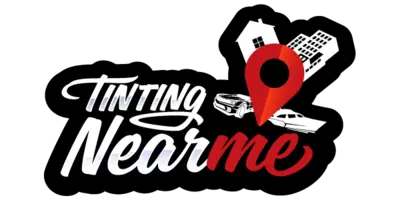2024 New Jersey Legal Tint Laws Explained
While you might think that tinting your car windows is just a matter of personal preference, it’s actually regulated by specific laws in New Jersey that you’ll need to understand to avoid penalties. In 2024, these laws have been updated, and they now encompass certain restrictions and allowances that weren’t present before. You’ll find that the laws vary depending on the window location, type of tint, and even certain medical conditions. But don’t fret, we’ve got you covered with a comprehensive guide to these changes. Why not take a moment to familiarize yourself with the 2024 New Jersey Legal Tint Laws? We promise it’ll save you both time and potential fines down the road.
The information on tintlaws.com isn’t legal advice; consider it a starting point. Always verify with local and state authorities, as the final decision rests with you. We are not lawyers. For specific legal guidance, we can refer you to legal experts. Remember, knowledge of both state and local laws is essential, and even law enforcement might not be fully updated. We aim for accuracy but advise double-checking for the latest regulations.
Key Takeaways
Key Takeaways
Key Takeaways
- VLT, or Visible Light Transmission, determines the amount of light allowed through car windows.
- New Jersey has specific tint darkness regulations for different vehicle types, with sedans and SUVs requiring 100% VLT for windshields and front side windows.
- Reflective or mirrored tints are strictly prohibited on all vehicle windows in New Jersey, regardless of tint darkness.
- Individuals with medical conditions can apply for a medical exemption for tinted windows, but dual side mirrors are required if the back window is tinted.
Understanding VLT in Tint Laws
When it comes to tint laws in New Jersey, understanding VLT, or Visible Light Transmission, is crucial as it determines the percentage of light permitted through your car windows. This key concept in New Jersey window tinting, VLT is the factor that dictates the tint darkness on your vehicle.
VLT percentages vary and are set for different vehicle types, and also for front and back windows. In essence, the VLT percentage represents the amount of visible light allowed to transmit through the window film. For instance, a VLT of 70% means 70% of the light will pass through, whereas a lower VLT of 20% only allows 20% of the light to pass, resulting in a darker tint.
These New Jersey tint laws are not arbitrary; they’re established to ensure safety and visibility on the road. A darker tint can potentially reduce visibility, especially under night-time driving conditions, and can pose a risk to both the driver and others on the road. That’s why compliance with car window tinting rules is important to avoid penalties and fines.
New Jersey’s Legal Tint Darkness
Building on your understanding of VLT, let’s now explore the specific legal tint darkness permitted for vehicles in New Jersey. A number like 107 may seem random but it’s vital in the context of New Jersey window tint laws. It refers to the statute that outlines these laws, ensuring that you keep on the right side of the law when you choose your window tint.
New Jersey allows certain restrictions when it comes to the darkness of tint on various windows of your vehicle. To avoid illegal window tint, familiarize yourself with the specifics:
- For sedans, there is no legal tint for the windshield and front side windows, meaning they must allow 100% of visible light. However, any darkness is permitted for back side and rear windows.
- Similarly, for SUVs and vans, the windshield and front side windows must be without tint, while back side and rear windows can have any level of tint darkness.
- Regardless of the type of vehicle, reflective, mirrored, or metallic tints are strictly prohibited.
- If you opt to tint your back window, New Jersey law mandates the use of dual side mirrors for safety.
- These rules apply equally to residents and non-residents alike, so even if you’re just passing through, make sure your vehicle complies with Jersey window tint laws.
Reflective Tint Regulations in NJ
In New Jersey, the law explicitly prohibits the use of reflective or mirrored tints on any vehicle windows. This is a crucial aspect of the reflective tint regulations in New Jersey that you need to be aware of. These tints, often referred to as mirrored or metallic, can distort and impede visibility, creating a safety hazard on the road.
The tint rules in Jersey are fairly straightforward. The tint can be applied to your auto window, but it cannot have a reflective or mirrored appearance. This rule applies regardless of how dark or light the tint is.
It’s important to understand that the Department of Motor Vehicles (DMV) or law enforcement can and will check your vehicle for illegal tint. If you are found to be in violation of the tint regulations, you could face fines or even have your vehicle impounded.
However, tint in New Jersey is not entirely prohibited. While you can’t use mirrored or metallic tints, you are allowed to apply non-reflective tint to the top of the windshield above the manufacturer’s AS-1 line. Additionally, all windows can be tinted, provided they allow more than 70% light inside.
Medical Exemptions in Tint Laws
Navigating the tint laws in New Jersey, you’ll find a ray of hope if you have a medical condition that necessitates the use of tinted windows. Medical exemptions for special sun-screening for medical reasons are in place to accommodate those in need.
Understanding the process is vital. You’ll need to consult New Jersey’s exemption application form (.pdf), named MVC Sunscreening 1. This form requires completion by a licensed physician and includes a valid prescription for tinted windows. Submit this form to your local DMV or law enforcement agency for consideration.
While exploring the regulations in New Jersey, you’ll notice that: * Individuals with medical conditions can apply for a medical exemption for tinted windows. * The application form needs to be completed by a physician and include a valid prescription. * The medical exemption allows individuals to have tinted windows for medical reasons. * Dual side mirrors are required if the back window is tinted. * New Jersey law does not have specific color restrictions for window tint with medical exemptions.
Knowing these laws in New Jersey is essential to identify legal tinting options for your vehicle. Also, keep in mind that if your back window is tinted, dual side mirrors are mandatory.
Importance of Window Tint Certification
Your vehicle’s window tint certification plays a crucial role in ensuring that the tint adheres to legal standards, protects your safety on the road, and helps you avoid fines for non-compliance. This certification is your guarantee that the film applied to your car’s windows is within the allowed limits set by the Jersey Motor Vehicle law.
Tinting your car windows isn’t just about aesthetics. It’s also about safety and legality. A certified window tint does not obstruct visibility, ensuring that you can see clearly while driving. Additionally, it is proof that the tint is allowed under the law, which can be crucial during vehicle inspections or when dealing with law enforcement.
But the importance of window tint certification doesn’t end there. It also guides you, the consumer, in making informed decisions. When you buy a certified window tint, you know it meets a quality standard. You know what you’re getting and how it aligns with the law. This reduces the risk of purchasing a substandard film that could pose safety risks or land you in trouble with the authorities.

How to Get Medical Exemption For Window Tint in New Jersey
Discover MyEyeRx.net, a company that streamlines the process of obtaining a medical exemption for window tint online. Explore their services to easily transform your window tint from non-compliant to legally approved!
Because of the differences in each of the 50 states, we’ve crafted distinct guides for securing window tint medical exemptions across all 50 states.

Toriano (Tory) Dewberry
Become one of the many satisfied clients Toriano has assisted in obtaining a medical exemption without stepping out of their homes. Click the button below to begin and discover if you're eligible for a medical exemption.

Toriano (Tory) Dewberry
Become one of the many satisfied clients Toriano has assisted in obtaining a medical exemption without stepping out of their homes. Click the button below to begin and discover if you're eligible for a medical exemption.
Frequently Asked Questions (FAQ'S)
What Is the Darkest Legal Tint in Nj?
You’re curious about the darkest legal tint in NJ. The state’s tint regulations allow any tint darkness on back side and rear windows. However, no tint is allowed on windshield and front side windows. Yet, there are exceptions. Health exemptions may permit darker tints. Remember, NJ tint rules are enforced during vehicle inspections. Breaking tint laws can lead to penalties. Understand these legality issues to avoid any problems with your window tinting.
Is 30 Percent Tint Legal in Nj?
No, in New Jersey, 30 percent tint isn’t legal for your car’s front side windows. You’re only allowed tint on the back side windows and rear windows. Breaking tint laws can lead to hefty fines. Remember, no mirrored or metallic appearances on any windows. If your rear window is tinted, dual side mirrors are required. It’s important to understand these laws, safety concerns, and the benefits of window tint before starting the tint application process.
Do NJ Cops Care About Tints?
Whether NJ cops care about tints can vary. Some might enforce tint laws frequently due to safety concerns and visibility issues. Others might exercise officer discretion. If you’re stopped, legal ramifications could include a fine or a demand for tint removal. Special permits exist for tint exceptions, but they’re not common. So, it’s best to follow the law’s variations in NJ to avoid any hassles.
How Do I Pass My Tinted Windows Inspection in Nj?
To pass your tinted windows inspection in NJ, you’ve got to prepare properly. Check the tint material to ensure it’s within legal limits. Consider tint removal if it’s too dark. Understand the inspection criteria and be aware of the legal consequences for failing. Seek tint exemptions if applicable. Be prepared for inspection costs. Remember, failing an inspection isn’t the end – you can always correct and retest. Keep these passing tips in mind for a smooth inspection.

Tint Laws Team
Ensuring your tint is not just about style, but legality and safety.
Let us guide you through the maze of state regulations to legal clarity.

Conclusion
Comprehending New Jersey’s complex tint laws can be a clear-cut challenge. However, it’s crucial to keep current to avoid costly penalties. Whether it’s the variable VLT, reflective regulations, or medical exemptions, each element is essential. No need for tint certification, but remember, mirrored or metallic tints are a major mistake. Stay savvy on these specific standards to safely secure your vehicle’s suitability with the state’s stipulations.
Looking to find a Reputable Window Tint Company In New Jersey?
Checkout Tintingnearme.com to Find A Local Tint Shop
After learning about window tint laws, the next step is to find a trusted local window tinting shop. Our directory at Tinting Near Me offers a selection of reputable shops knowledgeable in both quality tinting and legal standards, including medical exemptions.
Choose a shop from our list for expert service that meets legal requirements and enhances your vehicle’s compliance and protection.



